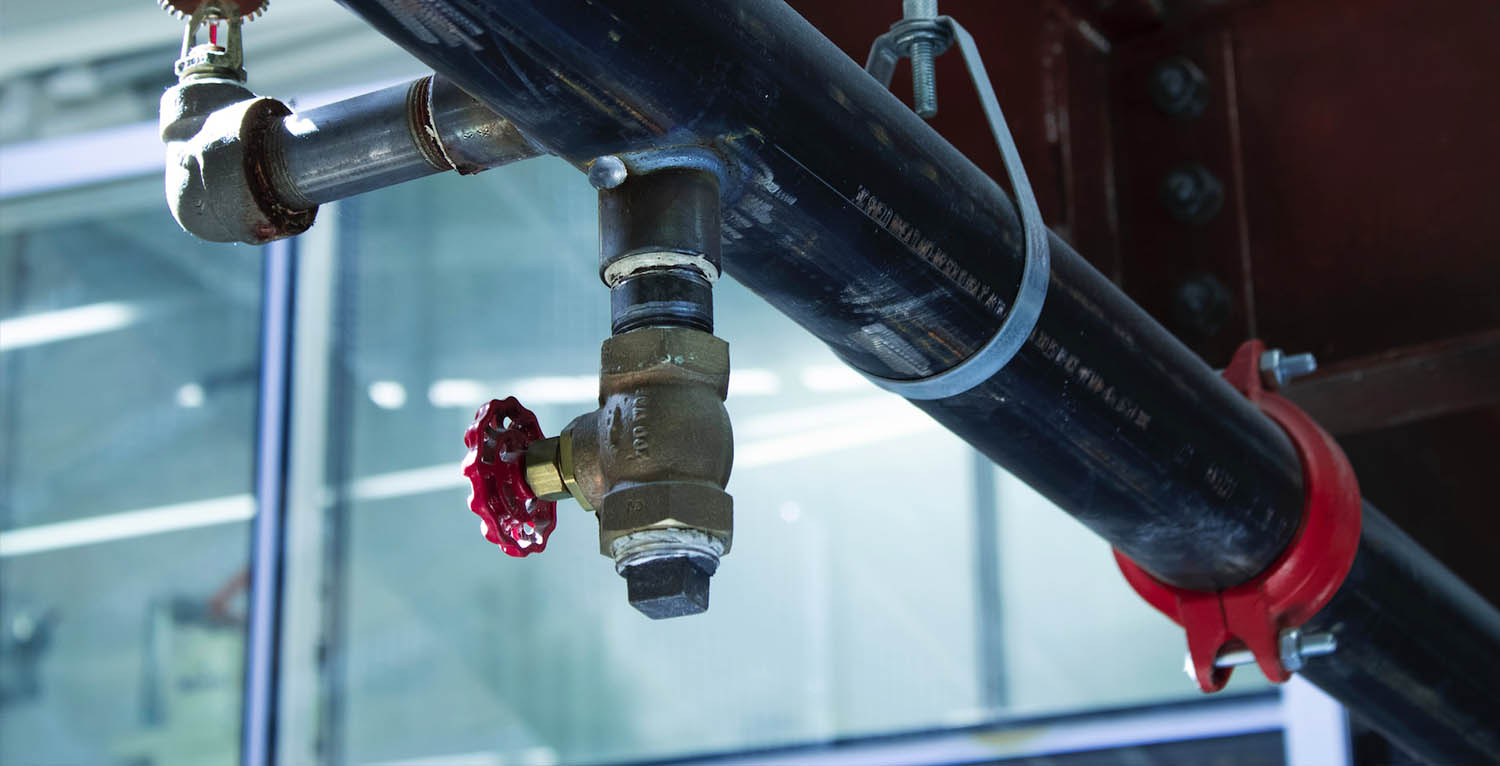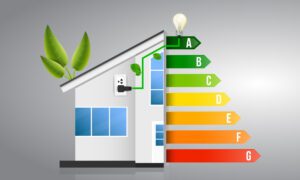In the dynamic world of HVAC business consulting, optimizing heating, ventilation, and air conditioning (HVAC) systems for energy efficiency and cost savings is paramount. From energy efficiency strategies to smart building integration, this article delves into essential aspects of HVAC consultancy that drive success for both businesses and the environment. Read more about HVAC and “VVS konsult” in the Swedish news article “VVS i modern byggnadsteknik | Varför anlita en VVS Konsult”.
Energy efficiency strategies in HVAC business consulting
Understanding energy efficiency in HVAC systems
HVAC systems are a vital part of any building’s infrastructure, and their energy consumption can account for a significant portion of operating costs. Energy efficiency strategies involve fine-tuning these systems to deliver optimal performance while minimizing energy consumption.
Key factors affecting energy efficiency
Factors such as equipment selection, system design, and user behavior play pivotal roles in HVAC energy efficiency. By addressing these factors, consultants help businesses strike a balance between comfort and economy.
Optimizing HVAC operations for efficiency
From utilizing programmable thermostats to implementing zoning strategies, there are various techniques to optimize HVAC operations. Consultants assess the specific needs of a business and recommend tailored solutions that enhance energy efficiency without sacrificing comfort.
Retrofitting and upgrades
The importance of upgrading HVAC systems
As technology evolves, so do the standards for HVAC efficiency and environmental impact. Retrofitting existing systems with modern upgrades is essential to keep up with these advancements.
Modern efficiency and environmental standards
Advising clients on the latest efficiency standards and environmental regulations is a core aspect of HVAC business consulting. By suggesting retrofitting options, consultants guide businesses toward compliance and reduced energy consumption.
Selecting the right upgrades for maximum impact
Upgrades can range from improving insulation to replacing outdated components with energy-efficient alternatives. HVAC consultants analyze each client’s unique needs and recommend upgrades that deliver the most significant benefits.
HVAC business consulting – Indoor air quality enhancement
Significance of indoor air quality (IAQ)
Indoor air quality directly affects occupant health and comfort. Consultants focus on enhancing IAQ by addressing ventilation, filtration, and humidity control.
Ventilation and filtration solutions
Proper ventilation ensures a constant supply of fresh air, while advanced filtration systems capture allergens and pollutants. HVAC consultants help clients implement ventilation and filtration solutions that foster a healthier indoor environment.
Humidity control for improved IAQ
Maintaining optimal indoor humidity levels prevents mold growth and enhances occupant comfort. Consultants suggest humidity control strategies that align with a client’s needs and building requirements.
Smart building integration
The role of IoT in HVAC systems
The integration of IoT devices with HVAC systems revolutionizes control and monitoring. Consultants explore how IoT technologies can enhance system performance and energy efficiency.
Benefits of smart technologies in buildings
Smart building integration goes beyond HVAC control—it extends to lighting, security, and more. Highlight the broader advantages of embracing IoT to create intelligent, efficient, and responsive building environments. This is one of many advantages in HVAC business consulting.
Integrating IoT for enhanced control and monitoring
Harnessing the power of IoT, businesses can now achieve advanced control and real-time monitoring of their HVAC systems. This innovative approach allows for remote adjustments and even predictive maintenance, all contributing to more streamlined operations. Knowledgeable consultants assist in seamlessly integrating these IoT devices, optimizing overall efficiency.
Sustainability and green initiatives in HVAC business consulting
Embracing eco-friendly HVAC practices
In our environmentally conscious era, enterprises are increasingly seeking HVAC solutions that harmonize with sustainable principles. Here, consultants step in as pivotal guides, offering alternatives that align with eco-friendliness while also yielding cost efficiencies.
Achieving sustainability goals through green HVAC
Guided by HVAC business consulting, companies embark on the journey of adopting green HVAC practices. This encompasses adopting energy-efficient equipment and seamlessly incorporating renewable cccccccccccccc Beyond meeting sustainability objectives, these choices also cultivate a favorable public image.
Impact on the environment and bottom line
Through the implementation of green HVAC practices, the positive effects ripple beyond the confines of corporate walls. By curbing energy consumption and emissions, the environment benefits. Concurrently, businesses stand to reap enduring financial advantages, with reduced energy expenditures and heightened operational effectiveness.
Lifecycle cost analysis
The complete picture of HVAC costs
Consultants guide businesses in understanding the holistic cost of HVAC systems, encompassing initial investments, operational expenses, and maintenance costs over the system’s lifespan.
Balancing initial investment and long-term expenses
While initial costs might seem high, consultants emphasize the importance of evaluating long-term savings achieved through energy efficiency and reduced maintenance needs.
Making informed decisions with lifecycle analysis
Through meticulous lifecycle cost analysis, consultants empower businesses to make informed decisions about HVAC investments. This approach maximizes ROI and aligns with budgetary constraints.
Compliance with regulations through HVAC business consulting companies
Navigating complex HVAC regulations and codes
HVAC regulations and codes are intricate and constantly evolving. Consultants provide businesses with up-to-date insights, ensuring compliance and avoiding legal issues.
Ensuring legal compliance for HVAC systems
From environmental regulations to building codes, consultants guide clients through the complex landscape of HVAC-related regulations. This ensures that businesses operate within legal boundaries.
Staying up-to-date with changing standards
HVAC consultants keep a pulse on industry regulations and standards. They help clients stay informed about changes and implement necessary adjustments to remain compliant.
Building performance optimization
Analyzing HVAC system performance
HVAC consultants conduct thorough performance analyses to identify areas of improvement. This involves assessing factors such as energy consumption, temperature consistency, and system reliability.
Identifying improvement opportunities
Through data analysis, consultants pinpoint inefficiencies and offer recommendations for system enhancements. These insights lead to optimized HVAC operations and improved building performance.
Enhancing overall building performance
By fine-tuning HVAC systems, consultants contribute to overall building performance. Improved comfort, energy savings, and extended equipment lifespan positively impact a business’s bottom line.
Demand response strategies with HVAC business consulting companies
Understanding demand response in HVAC
Demand response involves adjusting HVAC operations during peak energy consumption periods. Consultants educate businesses on the benefits of participating in demand response programs.
Strategies for efficient energy consumption
Consultants develop strategies to reduce energy consumption during peak demand. This might include adjusting temperature setpoints or temporarily reducing HVAC load.
Benefits of participating in demand response programs
Participating in demand response not only supports grid stability but also offers financial incentives. Consultants guide businesses in implementing these strategies to effectively manage energy consumption.
Maintenance and preventive strategies
The value of regular HVAC maintenance
Regular maintenance is essential for preserving HVAC system performance and longevity. Consultants stress the importance of routine check-ups and servicing.
Developing effective preventive maintenance plans
HVAC consultants work with businesses to create customized maintenance plans. These plans outline regular inspection schedules, part replacements, and system optimization.
Extending equipment lifespan and reducing costs
Effective maintenance not only extends the lifespan of HVAC equipment but also minimizes the risk of unexpected breakdowns. Consultants assist businesses in developing strategies to reduce downtime and operational costs.
In the realm of HVAC business consulting, addressing energy efficiency, sustainability, and overall system performance are paramount. From optimizing energy consumption to integrating smart technologies, consultants play a pivotal role in enhancing businesses’ HVAC operations while adhering to regulations and driving environmental responsibility.
FAQs regarding HVAC business consulting
How can I improve the energy efficiency of my HVAC system?
Improving the energy efficiency of your HVAC system involves several steps. First, ensure regular maintenance to keep the system running smoothly. Consider upgrading to energy-efficient equipment and using programmable thermostats for precise control. Implement proper insulation and seal any leaks in the ductwork. Additionally, consult with HVAC experts to assess your system’s performance and recommend tailored energy efficiency strategies.
What are some common indoor air quality enhancement techniques?
Indoor air quality can be enhanced through various techniques. Adequate ventilation is crucial, so ensure proper air exchange through well-maintained ventilation systems. High-quality air filters can effectively capture pollutants and allergens. Installing air purifiers and humidifiers can further improve air quality. Proper cleaning practices, such as regular dusting and vacuuming, also contribute to a healthier indoor environment.
What role does IoT play in smart building HVAC integration?
The Internet of Things (IoT) revolutionizes smart building HVAC integration by enabling real-time monitoring, control, and optimization. IoT devices, such as smart thermostats and sensors, allow remote adjustments based on occupancy, weather conditions, and energy demand. This results in more efficient HVAC operations, reduced energy consumption, and increased occupant comfort.
How do sustainability practices impact HVAC business operations?
Embracing sustainability practices in HVAC operations positively impacts businesses in multiple ways. By adopting eco-friendly HVAC practices, businesses contribute to environmental preservation and establish a positive brand image. Additionally, sustainable practices often lead to reduced energy consumption, which translates to lower operational costs over time. It’s a win-win situation for both the environment and the bottom line.
What is the recommended frequency for HVAC system maintenance?
Regular HVAC system maintenance is crucial for optimal performance and longevity. Generally, it’s recommended to schedule maintenance twice a year, ideally in the spring and fall, before the cooling and heating seasons respectively. During these visits, professionals will inspect, clean, and tune up the system, ensuring it operates efficiently and identifying any potential issues before they become major problems.



































